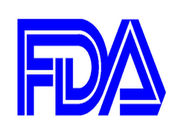ASHP: SVP, Injectable Opioid Shortages Threaten Patient Care
98.4 percent of respondents report moderate, severe shortages of morphine, hydromorphone, fentanyl
Galcanezumab Beats Placebo for Episodic Migraine
Treatment with 120- or 240-mg galcanezumab linked to reduction in migraine days versus placebo
Oral Propranolol Seems Safe for Infantile Hemangioma
Good safety profile for children with infantile hemangioma with no prespecified underlying disease
FDA Approves New Treatment for Ulcerative Colitis
First oral medication approved for chronic use in moderate-to-severe active ulcerative colitis
Birth Control Pills Recalled Over Potential Pregnancy Risk
Active capsules and inactive placebos may have been packaged out of order
Older Adults Often Reluctant to Set Up Secure Patient Portal
Concerns include increased chance of error versus talking on phone, in person
Annual Health Care Expenditure Higher for Hypertensive Patients
2.5 times inpatient cost, almost double outpatient cost, and almost triple the prescription meds cost
ACS Updates Colorectal Cancer Screening to Start at Age 45
Average-risk adults aged 45+ should undergo high-sensitivity stool-based test, structural exam
Elevated HbA1c Usually Leads to Prompt Tx Start, Intensification
Within 6 months of elevated HbA1c, rate of initiation 63 percent, rate of intensification 82 percent
Genomic Medicine Will Help Shift Cardio Care to Proactive Approach
Within two decades, many patients are likely to undergo routine cardiovascular genomic testing














